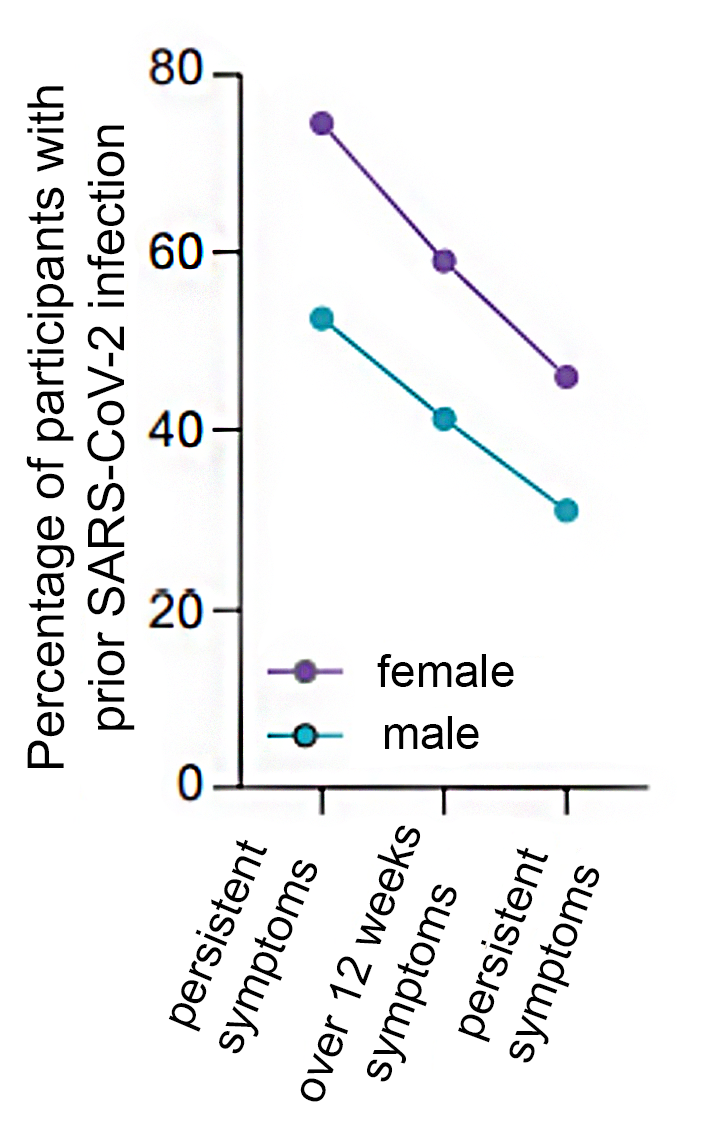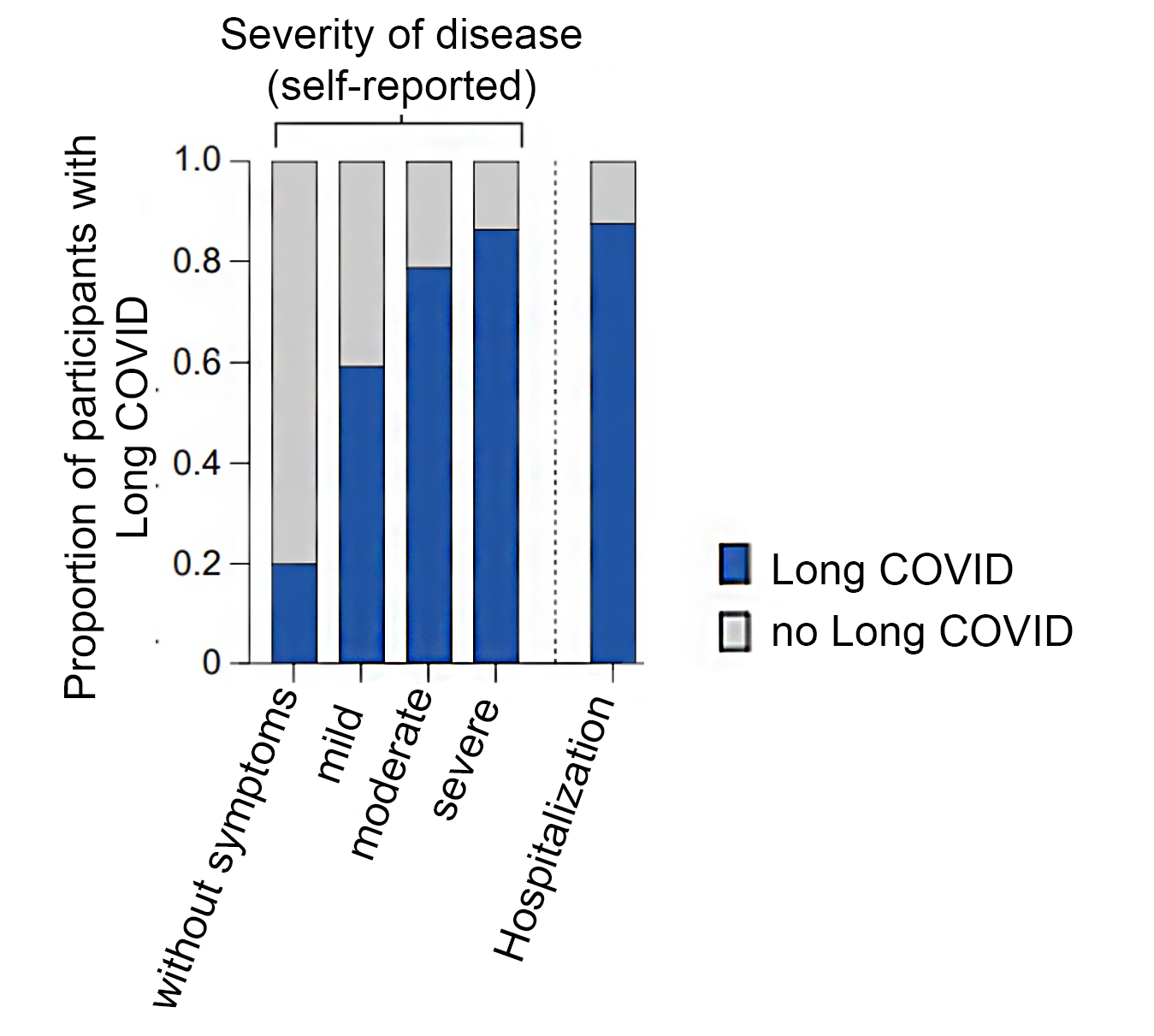In our sub-project in immunology, we examine immunological markers in people from households that had at least one known case of SARS-CoV-2 infection. We linked this information with data from a questionnaire on symptoms during the initial time of infection and the the time following it (Long-COVID). The main goal of this module is to gain a better understanding of SARS-CoV-2 infection and its long-term consequences and thus to develop adequate therapy options.
In a first interim evaluation of the first 318 participants, we were already able to glean important insights. Most of these participants were infected during the second wave of the pandemic. We found that 68% of participants reported long-term symptoms for more than four weeks after their corona infection. Here, women showed long-term symptoms more often than men (Fig. 1).
However, people of all age groups reported long-term symptoms equally often. The most common long-term symptoms were tiredness/ exhaustion, shortness of breath, and difficulty concentrating. These and more symptoms did not improve with vaccination after the infection.
Participants with severe symptoms during the infection developed long-term symptoms more often than those with mild or without any symptoms (Fig. 2). Additionally, participants with long-term symptoms showed elevated levels of certain messenger substances, even when a lot of time had already passed. These messenger might be released by cells in the lungs that have been activated by the corona infection.
For further information, please refer to the original publications, available at the links below:





